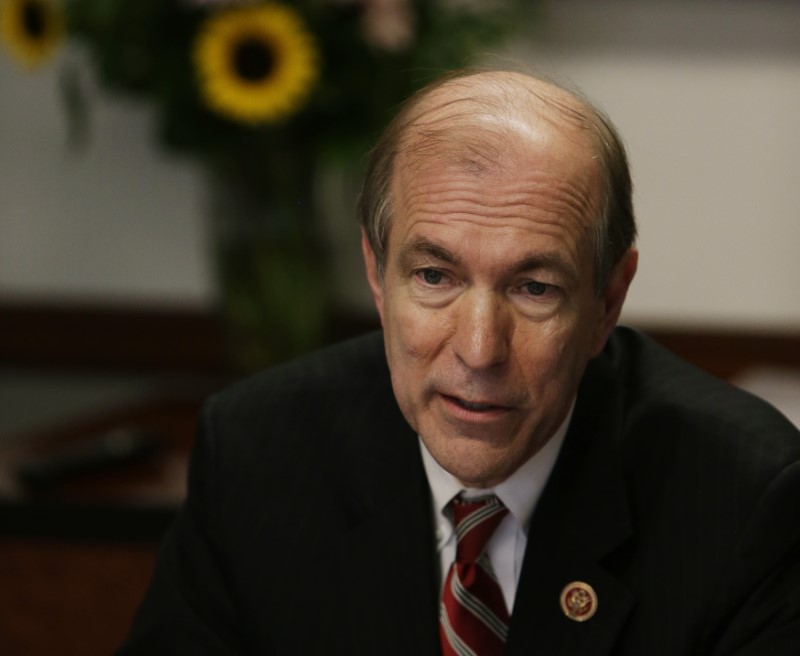WASHINGTON (Reuters) - President Donald Trump nominated former Republican lawmaker Scott Garrett as president of the Export-Import Bank of the United States on Friday, completing an about-face over an institution he had denounced as "featherbedding" for big business.
A White House statement also named Spencer Bachus, another Republican former congressman, to be a member of the board of directors of the bank. Both were named for four-year terms.
Trump told the Wall Street Journal on Wednesday he would fill the two vacancies on the bank's five-member board that have prevented it from having a quorum and being able to act on loans over $10 million.
His picks must gain approval from the Senate, which blocked nominees by former President Barack Obama.
The Export-Import Bank, an independent government agency, provides loans to foreign entities that enable them to purchase American-made goods. For example, it has been used by foreign airlines to purchase planes from Boeing Co (N:BA) and farmers in developing nations to acquire equipment.
The bank has become a popular target for conservatives, who worked in Congress to kill the institution, arguing that it perpetuates cronyism and does little to create American jobs.
Trump's backing of the bank represents a victory for manufacturers like Boeing and General Electric Co (N:GE), which have overseas customers that use the agency's government-backed loans to purchase their products.
Trump told the Journal the bank benefits small businesses and creates jobs, a reversal of his earlier criticism of the bank as being "featherbedding" for wealthy corporations.
Trump's about-face followed a meeting on Tuesday with former Boeing Chief Executive Jim McNerney, who left the company last year but oversaw the corporation's aggressive lobbying effort in support of the bank in 2015.
Large American corporations that do significant amounts of exports say other countries have similar agencies and the export bank levels the playing field.

A 2015 fight to shutter the bank led by conservatives in Congress allowed the bank's charter to expire for five months. After overwhelming bipartisan support emerged to renew the bank's charter, which is needed for it to operate, conservatives blocked nominees to the board, preventing it from financing large exports like aircraft and power turbines.